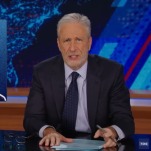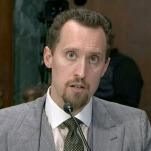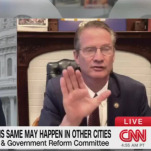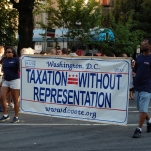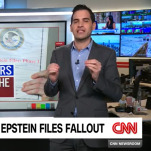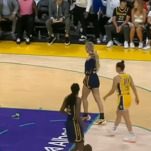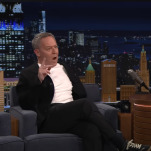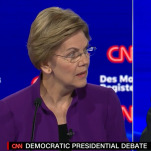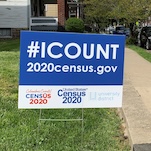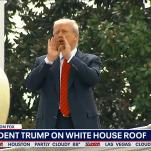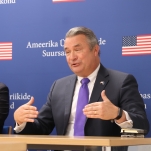As Marvin Gaye played in the background, Bernie Sanders talked about what it would take to beat Hillary Clinton
Bernie Sanders admits there’s something paradoxical about his situation.
He’ll spend a couple minutes of what might soon be a presidential stump speech—and more in an interview—talking about what he considers to be a disastrous Supreme Court decision: the Citizens United case that opened the door for almost limitless outside contributions.
But then he’s weighing a Democratic primary challenge to former Secretary of State Hillary Clinton. And to mount a competitive challenge in what may be the most expensive presidential election in history, he’ll have to take the thing he hates most in politics: money.
“The problem is not in presenting a compelling progressive alternative,” Sanders, an independent senator from Vermont, told Fusion in an interview in New York on Wednesday.
“The problem in the country now where running for president may cost more than a billion dollars is how do you get that message out? And it may in fact be too late. It may be that the billionaire class is so powerful in their control over the economy, in their control over the political country, in their control over the media and what gets focused on—it’s possible that they can’t be beaten.”
Sanders was in the midst of a media tour in New York City, and he promised to decide “very soon” on whether he’ll run for president. There’s also the question of whether he’ll do it as part of the Democratic field—he’s an independent senator who caucuses with Democrats—or whether he’ll run as a true independent.
Late in the morning was an interview with The Huffington Post. Then Bloomberg Politics with Mark Halperin and John Heilemann. The nightcap: An appearance on The Nightly Show with Larry Wilmore on Comedy Central. Sandwiched between all of this, he sat on a couch in the lobby of the luxurious Lucerne hotel on Manhattan’s Upper West side (as Marvin Gaye played on loop in the background)—a couch he joked has become his “office” over parts of the past two days.
-

-

-

-

-

-

-

-

-

-

-

-

-

-

-

-

-

-

-

-

-

-

-

-

-

-

-

-

-

-

-

-

-

-

-

-

-

-

-

-

-

-

-

-

-

-

-

-

-

-

-

-

-

-

-

-

-

-

-

-

-

-

-

-

-

-

-

-

-

-

-

-

-

-

-

-

-

-

-

-

-

-

-

-

-

-

-

-

-

-

-

-

-

-

-

-

-

-

-

-

-

-

-

-

-

-

-

-














































































